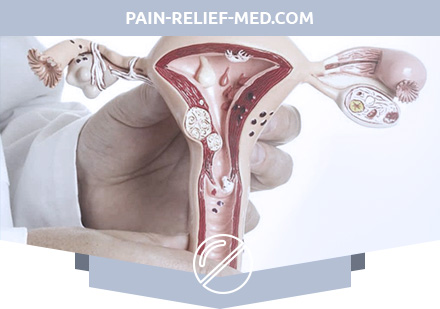What is Ovarian Dysfunction?
Ovarian dysfunction is not a disease, but what causes diseases that violate the menstrual cycle and hormonal function of the ovaries. Many women do not pay due attention to this. If they knew that ovarian dysfunction could lead to infertility and cancers, they would not be so irresponsible about their health.
Causes of Ovarian Dysfunction
The most common cause of dysfunction is endocrine disruption or thyroid disease. Ovarian inflammation also occurs not infrequently. This is due to a lack of proper hygiene, especially in intimate life. The ovaries can suffer due to diseases of the fallopian tubes, due to infection of the intestines with an infection that enters the ovaries through the blood vessels. They suffer if they are ill with the rest of the genitals: the uterus and appendages. Affects the presence of tumor dysfunction, fibroids, endometriosis. “Harmony” is broken in the ovaries when a woman is ill with diabetes or obesity. The use of certain medications also often does not fail. The effects of stress, improper lifestyle, and frequent depression weaken the work of the ovaries. If a woman moves from areas with one climate to other climatic conditions, dysfunction can also make itself felt. The cause of ovarian dysfunction is an abortion that was performed incorrectly or the first abortion in a woman’s life.
Symptoms of Ovarian Dysfunction
Usually, the duration of menstruation ranges from three days to a week. Between critical days, the interval is 21-35 days. Each time during menstruation, up to 100 ml is lost. blood. Violation of at least one of these parameters means the development of ovarian dysfunction – dysfunctional uterine bleeding.
In the body of a woman there are hormones that are responsible for the hormonal function of the ovaries. Their pituitary gland develops – the main endocrine gland of the body. When the formation and secretion of hormones is disturbed, the menstrual cycle malfunctions, namely the absence of ovulation – the release of matured eggs. Without ovulation, the menstrual cycle becomes inferior, and as a result, irregular.
- There are spotting in between critical days, and the menstruation itself becomes too weak.
- Before menstruation and in the middle of the cycle, severe pulling pains in the lower abdomen may appear. Sometimes, they give to the hip or lumbar region.
- An increase in body temperature is noted.
- Pus may form in the ovaries.
- The mood of a woman is changing. She suffers menstruation very sharply with sharp mood swings, pronounced apathy, weakness.
- The complexion becomes pale, palpitations, dizziness, appetite decreases.
- With the advanced stages of the disease, menstruation can stop.
Diagnosis of Ovarian Dysfunction
In order to find the cause of ovarian dysfunction, it is necessary to turn not to a simple gynecologist, but to a gynecologist – an endocrinologist. He will propose an ultrasound of the genitals, thyroid gland and adrenal glands. It will be necessary to take tests for the presence of infections such as candidiasis, chlamydia and others. For this, a smear is taken from the patient. To find out the state of the hormonal background, other tests are taken: a blood and urine test. The pituitary gland is also examined using x-ray of the skull and tomography. Mandatory to identify the causes of dysfunction electroencephalography. In addition, curettage is made from the cervix and uterine cavity, which shows the state of the uterus from the inside.
Treatment of Ovarian Dysfunction
The doctor must restore hormonal disorders, cure the infection and other concomitant diseases. If necessary, the specialist convinces the person to change their lifestyle, for example, not to react so emotionally to the difficulties that arise. Perhaps the patient will be prescribed dietary supplements, vitamins. Sometimes, acupuncture, therapeutic massage are prescribed. As a result of treatment, the menstrual cycle is restored.

